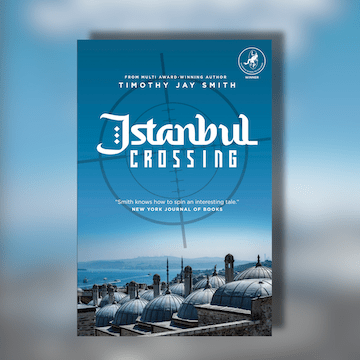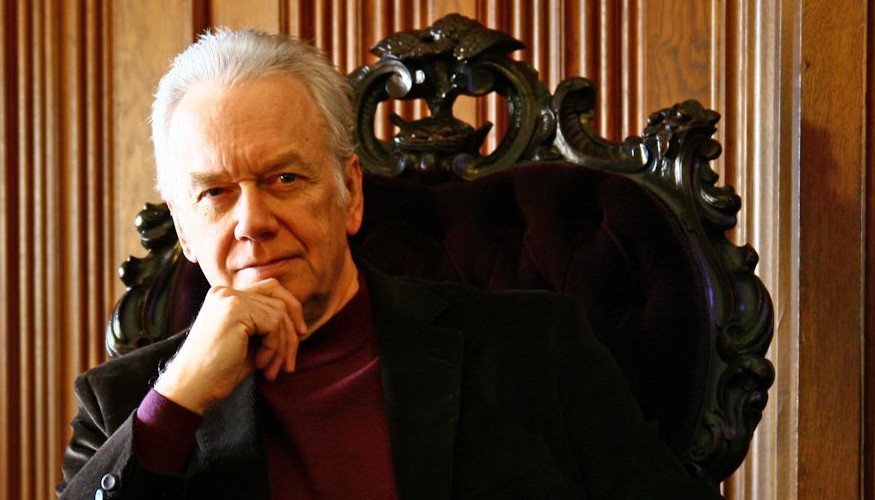
Robert Bloch’s 1959 novel, Psycho, is one of the most influential in crime fiction. It was the basis for Alfred Hitchcock’s seminal film the following year, which not only permeated popular culture but changed how horror movies would be made. Now, Norman Bates is to return to the printed page thanks to the American author, actor and musician Chet Williamson. Psycho: Sanitarium has recently been released, and it takes up the story directly after Norman Bates’ incarceration at the end of the first book. Although Robert Bloch later wrote the sequels Psycho II (1982) and Psycho House (1990), this is our first chance to read about fallout of the Marion Crane murder and what Norman does next. We asked Chet Williamson to join us and talk about this exciting new novel…
What made you decide you’d like to write a sequel to Bloch’s book?
To put it as simply as possible, I was offered the opportunity. Macmillan Entertainment and the Robert Bloch estate told me that they wanted an immediate sequel to Bloch’s first Psycho novel, and asked if I was interested in writing it. I’d grown up with Psycho, both the film and the book, and have always been a huge Robert Bloch fan, so I leapt at the chance to continue Norman Bates’s story.
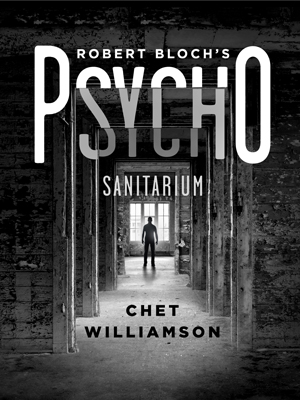
And what do you think crime fiction lovers will love about Psycho: Sanitarium?
Norman Bates and Psycho are iconic for crime fiction readers, but there’s never before been a direct continuation of the original story that picks right up where Psycho ends. Frankly, I tried to write a novel that would come as close as possible to what might have been written if Bloch had sat down at his typewriter in 1960 and said to himself, “What happens next?” After Bloch’s daughter read the manuscript, she told me that she thought her father would have been delighted with it. That’s the highest praise I could have hoped for.
Where did the idea for Norman’s twin brother come from, and what can you tell us about Robert Newman?
I’ve always been fascinated by the fictional possibilities of twins and doppelgangers – my novel Reign is an exploration of that – and I liked the idea of showing a darkness inside Robert that might be even deeper than that inside Norman. At first, Robert is a godsend for Norman – a brother and a friend he never had, a person who has his own business and a loving family, but who might be actually worse than Norman.
There are many sides to Norman Bates, are we going to see some new ones here?
It’s my hope that readers will find Norman as empathetic and vulnerable as he’s ever been. Remember, Norman is sick, not truly evil, and we’ll see him as he struggles to cure that sickness by driving ‘Mother’ out of his psyche altogether. But the question is whether or not she will be cooperative.
What were the things about Bloch’s writing – its tone and intent – that you wanted to preserve, and what have you tried to change or update?
I’ve always been a huge fan of Bloch’s very clear and plain style, so it wasn’t too difficult to emulate it, as I’ve essentially been trying to do that all my life. As far as his intent, I tried to be true to the character of Norman that Bloch created in the first book. As far as updates go, no. The book takes place in 1960-61, and I tried to replicate the era, as well as use some of the popular fiction tropes of the early 1960s. I hope readers will enjoy these throwbacks to an earlier time.
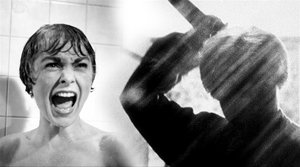
Alfred Hitchcock’s film is what popularised Robert Bloch’s story. Did you have that in your mind’s eye when you were writing Psycho: Sanitarium?
Hitchcock’s film and Bloch’s novel are two different birds with very similar plumage. I tried to forget as much as I could about the film, which was impossible, as it’s embedded in my genes. Still, my Norman is Bloch’s Norman rather than Hitch’s: fortyish, plump, and unattractive. But the soul of Norman is the same in both film and original novel, and I tried to retain that.
Have you explored anything similar in your previous books and can you tell us more about relevant, similar titles?
I’ve always enjoyed writing about people who are a bit, shall we say, sanity-challenged. My novels Dreamthorp, Second Chance, McKain’s Dilemma, and Defenders of the Faith all deal with such people. They act out their psychoses in a variety of ways, from serial murder to psychological torture to the attempted extermination of the human race. Not totally pleasant people, but my goal as their creator is to make the reader at least empathetic towards them, if not on their side.
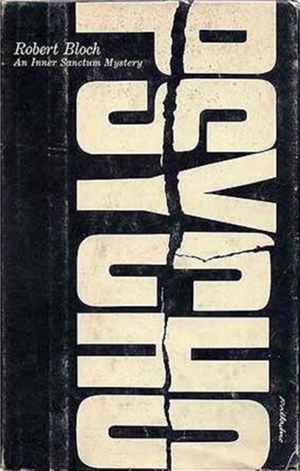
Norman Bates has appeared in the prequel TV series, Bates Motel, recently. In 1980s we had Psycho II, III and IV. Gus Van Sant remade the original film. Did any of these inform you?
I wanted to stay far away from any of these until I’d finished the book. I’d seen the film sequels when they first came out (mostly on video), but didn’t remember much about them at all, and I still haven’t seen Bates Motel, though I’d like to now. The TV/film universe of Psycho and the Bloch novel universe are two completely different beasts, and I wanted to keep them that way.
What are you reading these days?
I just finished Magnus Mills’ The Restraint of Beasts, and have just begun one of Elizabeth Hand’s Cass Neary crime novels. Before those, I read the new Joe Lansdale Hap & Leonard book, and Henry James’ The Spoils of Poynton. My reading is all over the place.
What’s your next project?
I’m currently working on a short play about what really happened to Hamlet, and have been reading and researching for a new novel, but it’s way too early to discuss that one. As for a sequel to Psycho: Sanitarium, it was always considered a one-off, so none are planned. Norman has left the building.
Watch for our review of Psycho: Sanitarium soon. For an interesting crime novel inspired by Psycho but with an entirely different style to it, try What You See in the Dark.








